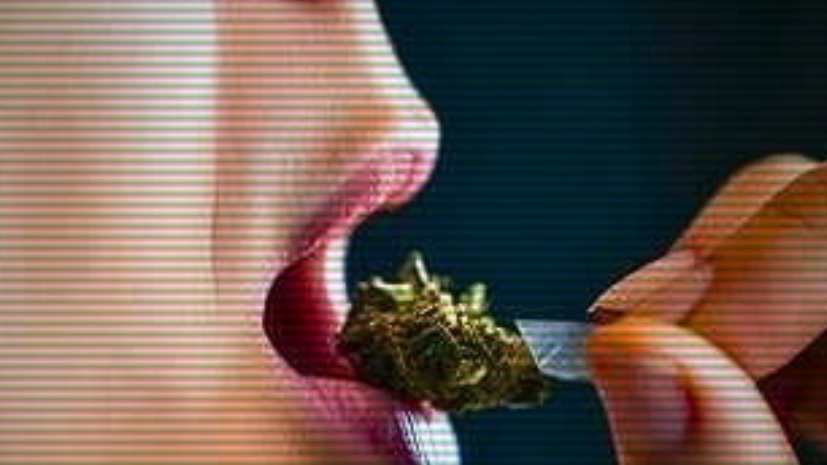Table of Contents
Introduction
When flu season hits, people often look for different remedies to ease their symptoms—ranging from traditional medicine to natural alternatives like cannabis. But if you’re considering taking edibles when sick with the flu, you might wonder: Is it safe? Will it help or make things worse?
Edibles are a popular cannabis consumption method because they provide long-lasting effects without the need to inhale smoke or vapor. Many users turn to THC and CBD gummies, chocolates, or infused drinks to relieve pain, improve sleep, and reduce nausea. However, using edibles when you have the flu isn’t as simple as it sounds.
In this guide, we’ll explore the potential benefits, risks, and best practices for taking edibles while sick.
Understanding How Edibles Work in the Body
Before diving into whether edibles help with the flu, it’s important to understand how they work.
How Edibles Affect the Body
- Unlike smoking or vaping, edibles must be digested and metabolized by the liver, converting THC into 11-hydroxy-THC, which produces stronger and longer-lasting effects.
- This means that edibles take longer to kick in (30 minutes to 2 hours) but can last up to 8-12 hours.
How Cannabis Interacts with the Immune System?
- The endocannabinoid system (ECS) plays a role in regulating immune response and inflammation.
- Some studies suggest that CBD and THC have anti-inflammatory properties, which could be beneficial for flu symptoms like body aches and headaches.
Edibles vs. Smoking/Vaping for Flu Symptoms
| Consumption Method | Pros | Cons |
|---|---|---|
| Edibles | No lung irritation, longer-lasting relief | Takes longer to work, harder to dose |
| Smoking/Vaping | Faster relief, immediate effects | Can irritate throat and lungs, not ideal for respiratory illness |
Do edibles help with a cold? (really)
Although they are not a cure, edibles may provide some respite from the symptoms of a cold. Below is a thorough analysis of their possible advantages and factors to take into account:
1. Reduction of Symptoms Possibility
Cannabinoids like THC and CBD found in edibles may help treat some cold symptoms:
- Headaches, body aches, and sore throats may be lessened by the analgesic and anti-inflammatory qualities of THC and CBD.
- Appetite and Nausea: THC has been shown to increase appetite and decrease nausea, which may be helpful if a cold makes you feel queasy or lose your appetite.
- Sleep Support: Edibles containing CBN or indica may help people relax and sleep better, which can speed up their recuperation.
2. Safer Than Smoking
The respiratory hazards of smoking and vaping, which exacerbate coughing, congestion, or throat irritation, are avoided by eating edibles. They are therefore a better choice for people who have respiratory problems associated with colds.
3. Limited Direct Evidence
There isn’t any solid proof that edibles directly fight cold viruses or reduce the length of sickness, even though preclinical research indicates that cannabinoids like CBD have anti-inflammatory and antiviral qualities. The main advantage they offer is symptom relief.
4. Practical Considerations
- Slow Onset: People looking for quick relief would not benefit from edibles because they take 30 to 2 hours to start working.
- Dosing Issues: Excessive intake, particularly in those who are not used to cannabis, might cause lightheadedness or anxiety. It is recommended to begin with low dosages (e.g., 2.5–5 mg THC) .
- Sugar Content: To prevent aggravating inflammation, choose low-sugar choices (such as tinctures or infused beverages).
5. Interactions and Risks
- Medication Interactions: Codeine and Benadryl are examples of cold medicines that can interact with cannabinoids to increase drowsiness or dizzy.
- Immunological Response: Little is known about the impact of cannabis on immunological response during infections. If you have any underlying medical conditions, see a doctor.
Potential Short-Term Benefits of Taking Edibles When Sick with the Flu

Some people report that cannabis helps them manage flu symptoms or taking edibles when sick with flu. Here’s how edibles may help:
1. Pain Relief for Body Aches
- THC and CBD have analgesic (pain-relieving) properties that can help with muscle aches, headaches, and general flu discomfort.
2. Sleep Aid and Relaxation
- Flu symptoms can make it hard to sleep, but THC-rich edibles may promote deep relaxation and drowsiness.
3. Nausea Reduction and Appetite Stimulation
- THC is well-known for reducing nausea and stimulating appetite, which can be useful if flu symptoms make eating difficult.
4. Anti-Inflammatory Effects
- CBD, in particular, is believed to reduce inflammation, which could help with sinus pressure and overall discomfort.
Long-Term Risks and Side Effects of Taking Edibles When Sick with Flu
While edibles offer potential benefits, they also come with risks that may worsen flu symptoms.
1. Dehydration
- Cannabis can cause dry mouth, and flu symptoms often lead to fluid loss from fever and sweating.
- Not drinking enough water could make dehydration worse.
2. THC’s Effect on Body Temperature
- High doses of THC can affect thermoregulation, making fever symptoms feel more intense.
3. Increased Dizziness and Fatigue
- THC can cause dizziness, drowsiness, or grogginess, which could make flu-related fatigue worse.
4. Interaction with Flu Medications
- Some medications (like decongestants) may interact poorly with THC, leading to increased drowsiness or rapid heart rate.

Should You Take THC or CBD Edibles When Sick?
THC vs. CBD for Flu Symptoms
- THC: Best for pain relief, sleep, and appetite stimulation, but may cause fatigue or dizziness.
- CBD: Best for inflammation, mild pain relief, and relaxation, without the psychoactive effects of THC.
Best Types of Edibles for Flu Recovery
- Low-dose THC edibles (5-10 mg) for mild relief
- CBD-dominant edibles (10-25 mg) for anti-inflammatory benefits
- Cannabis-infused teas or lozenges for a soothing effect
How to Consume Edibles Safely While Sick?
- Start with a low dose (5-10 mg THC or 10-25 mg CBD)
- Drink plenty of water to prevent dehydration
- Avoid mixing with flu medications
- Take edibles at night if they make you sleepy
Alternatives to Edibles for Flu Relief
If you’re unsure about using edibles, try these cannabis and non-cannabis alternatives:
- CBD-infused teas or honey
- Ginger, turmeric, and lemon tea
- Soup and broth for hydration
- Steam inhalation for congestion
Can Edibles Worsen Flu Symptoms?
When to Avoid Edibles While Sick
🚨 You have severe nausea and vomiting
🚨 You’re extremely dehydrated
🚨 You’re taking medications that interact poorly with THC
Best Practices for Recovery
- Drink plenty of fluids (water, herbal teas, soup)
- Eat nourishing foods to strengthen your immune system
- Get enough rest to help your body heal
- Consider CBD over THC for flu symptoms
Key Takeaways: Should You Take Edibles When Sick with the Flu?
So, can you take edibles when sick with the flu? The answer depends on your symptoms and tolerance. While THC and CBD edibles can help with pain, sleep, and nausea, they may also cause dehydration or dizziness.
👉 Final Tip: If you’re unsure, start with a low dose, drink plenty of water, and listen to your body before deciding if cannabis edibles are right for your flu recovery.
FAQs
1. Will taking edibles help with flu symptoms?
Edibles may provide pain relief, appetite stimulation, and relaxation, but they can also cause dehydration and dizziness. If you choose to take them, start with a low dose and drink plenty of fluids.
2. Is it better to take THC or CBD when sick?
CBD is generally the better option for flu recovery since it reduces inflammation and promotes relaxation without the psychoactive effects of THC. However, low doses of THC may help with pain and nausea.
3. Can edibles make flu symptoms worse?
Yes, in some cases. High doses of THC can cause dizziness, paranoia, and nausea, which may make flu symptoms feel worse. Also, THC can increase dehydration, so staying hydrated is important.
4. Is it safe to take edibles while on flu medication?
Cannabis can interact with certain flu medications, including antihistamines, decongestants, and pain relievers. Always check with a doctor or pharmacist before combining edibles with medication.
5. What type of edibles are best when you’re sick?
✔ CBD gummies – Help with relaxation and inflammation
✔ Low-dose THC tinctures – Easy to digest and measure
✔ THC/CBD balanced chocolates – Can aid in pain relief and sleep
Avoid high-sugar edibles like brownies or candy, as sugar can worsen inflammation.
Thanks for reading!
Also Read: How Long Does Edible Last? – Effects & Recovery Tips




I believe this is one of the such a lot important information for me.
And i am glad reading your article. However want to remark on some normal things, The web
site style is wonderful, the articles is truly nice
: D. Good activity, cheers